

'Energy Recovery Investments Ltd' is proprosing to extract coal from large coal tips created by the Bedwas Colliery (1913 - 1985) in Bedwas, Caerphilly, South Wales over an operational period of 7 years (but this is often extended later). The company claims that it would use some of the sales of the coal to restore those coal tips afterwards. Based on historical estimates, the total volume of the Tips is approximately 5,000,000m³ which equates to around 8,500,000 tonnes of colliery spoil. The company claims that it expects to haul 468,000 tonnes of coal off the site via 20-tonne heavy goods vehicles (HGVs), driving further climate chaos by over 1.3 MILLION tonnes of CO2.
The Tips are classified as Category D which is defined as “A tip with the potential to impact public safety, to be inspected at least twice a year.”. The main risks associated with Bedwas are understood to be risk of tip fire and contamination of local watercourses (including Rhymney River), with land stability being of a lesser concern.
'Energy Recovery Investments Ltd' has not disclosed what proportions of coal will be sold to which market but does indicate "ERI’s proposal is to sell on these stockpiles of coal to heavy industry, the cement manufacturing industry and potentially energy production industry...", and elsewhere cite the steel sector and brickworks as potential customers.
The company would need to build a new section of haul road 575m long and 6m wide cut into the rock, and widen the existing forest track - possibly at the loss of trees bordering the road. It would involve works on setting up the site starting at 6am and continuing into the night until 10pm (16 hours/day, 15 hours every Saturday, and only Sunday without works) for 6-9 months (but this is likely to be extended, as is common for projects like this). Outside of these hours, maintanence works could still occur, according to the company. The company estimates an average of 90 hauls by HGVs per week to occur over the seven years operational period. This is equivalent approximately to 18-20 hauls HGVs going to and from the site every day.
The coal tips lie above a coal seam, which the company claims it would coincidentally have to dig into to create 'lagoons' for processing the coal from the coal tips. That's right, Energy Recovery Investments Ltd claims it needs to mine the coal in the seam, creating a further coal tip, in order to mine the coal in the coal tips already created. The company is trying to rebrand the coal mined from the tips and from digging the lagoons, as 'reclaimed' and 'incidental' coal respectively, in an attempt to get around Welsh Government policies against further coal extraction.
Energy Recovery Investments Ltd creates a new name for the coal it proposes to mine: "Reduced Carbon Coal" - a name based on the claim it could displace coal imported with the associated travel miles. This is an old argument that has been debunked many times. See our video with Economics expert, Prof. Paul Ekins or our myth-buster.
The company is so keen to distance this project from a coal mine, it has gone into greenwash overdrive - refusing to even call a coal washery by its normal name, and instead rebranding it as a "beneficiation/processing plant.
With absolutely no evidence or calculations, Energy Recovery Investments Ltd makes the outlandish claim in its planning statement that any, eventual and additional, 'carbon sink' like properties of the site after operations have finally ceased may offset the processing and extraction of the coal, transport by deisel HGVs, and end use.
Energy Recovery Investments Ltd presents the mining of coal as "a beneficial by-product of the tip reclamation process". It's the very objective of this company to generate a profit for itself from the mining of the coal tips - it is very far from being a by-product.
Energy Recovery Investments Ltd claims that a proportion of its coal will be used at steelworks, necessary for green infrastructure - a common argument which is even less true today than it was previously, as both virgin steelworks in the UK converts to using processes for producing steel from scrap that doesn't rely on coal inputs, ending the UK steel market for coal.
Energy Recovery Investments Ltd is a small company with assets valued at £114,000 in its 2022 annual financial accounts on Companies House – but only £9,000 cash assets. This is concerning as there would be limited scope to recover damages if mistakes are made or the company refuses to remediate the coal tips after extracting profitable coal from them.
The company was registered in 2008 and “the principle activity of the company is the recovery of coal from redundant coal tip sites”. But since 2012, the company has idled with zero staff until employing just 2 staff a decade later in 2022. Energy Recovery Investments Ltd has only operated one other site, in 2008, Six Bells and Vivien Tips near Abertillery, South Wales - which it extracted 260,000 tonnes of coal from over 2.5 years, by subsequently getting permission to opencast coal mine one end of the site.
Despite all its efforts to distance itself from coal mining, Energybuild Ltd (the coal mining company at Aberpergwm) has previously been a major shareholder in Energy Recovery Investments Ltd.
ERI Ltd is the wholly owned subsidiary of PPM Holdings Limited, a company incorporated in just 2022 with no published company accounts and currently registered as a ‘non-trading company’. The current Director of PPM Holdings Limited, Sian Thomas, was previously Director of Green Steel Works Ltd, which deals with ‘Remediation activities and other waste management services’ and is the official office address for Energy Recovery Investments Ltd. This kind of complicated and confusing corporate structure is typical of mining companies, and has been used in the past to evade corporate accountability. The other Director of PPM Holdings Limited is Mark Harvey, is a Director of 6 companies dealing with mineral waste disposal and storage, and real estate.
This proposal has strong similarities with the sprawling Ffos-y-fran opencast coal mine. The sale of the coal from this mine was to pay for the restoration of a neglected hill in Merthyr Tydfil to the extent the coal mine was even branded as the "Ffos Y Fran Land Reclamation Scheme". Yet, the profits from 16 years of coal mining has been put of reach, and the local Council faces up to £120 million shortfall to pay for the much greater restoration works now needed. We don't want Bedwas to become the next Ffos-y-fran disaster.
With over 300 at-risk coal tips registered across South Wales, and financial shortcomings to pay for their remediation, the concern is that the Bedwas coal tip is a testing ground for remediating the remaining coal tips. This would be disasterous for our climate and represent total contempt for the Wellbeing of Future Generations Act. The company has presented a planning statement littered with the tired justifications of mining companies. Stay tuned as we ask for your help in this campaign.

We’re actively setting the record straight when fake news about coal is spread through public figures, social media, or the press. The rise of populist politics and politicians tend to drive statements that are don’t entirely match the evidence, but may win them some votes…

Explore the landscape via the images below, drag around the viewpoints and go full-screen for the immersive experience. This is what the 58,000 residents of Merthyr Tydfil face every day…and with a new plan by mining company, Merthyr (South Wales) Ltd, to evade its responsibility to restore…

This information seeks to clarify which tips are included in ERI Ltd’s proposal to mine and then flatten certain coal tips in Caerphilly. The tips selected appear to be on the basis of which would be most profitable to mine of the ‘waste coal’ they contain…
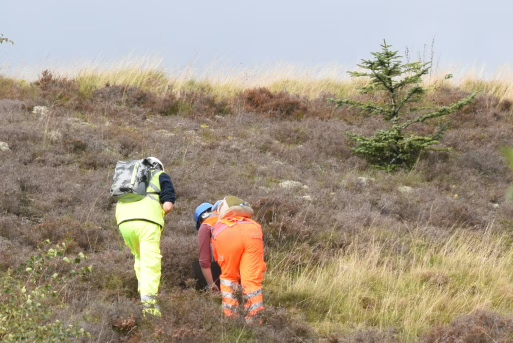
The Welsh Government’s Deputy First Minister, in his response to the CCEIC’s Stage 1 Report, admits the “Bill does not prevent the extraction or burning of coal” but adds “I cannot envisage a scenario in which the extraction and burning of coal will arise as a result of the Bill”…
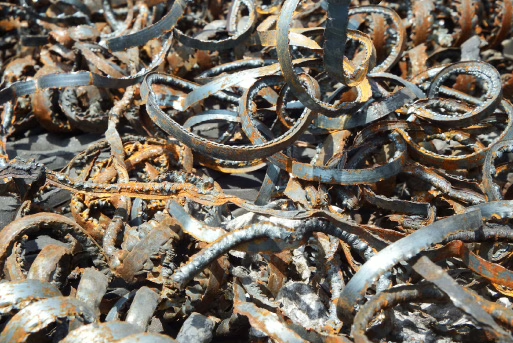
The direct use of coal as a feedstock (not just energy) is particularly significant in China, where coal is used extensively in coal to gasification plants to produce chemicals such as methanol, ammonia, and…

This nature was photographed around 50 metres from the edge of the Glan Lash opencast coal mine in Ammanford, South Wales. It shows the thriving ecosystems surrounding the Glan Lash opencast coal mine which has remained dormant since 2019…
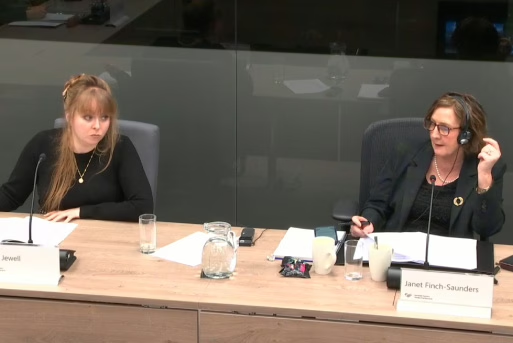
In February, CAN gave oral testimony to the Climate Change, Energy, and Infrastructure Committee (CCEIC) on the Disused Mine and Quarry Tips (Wales) Bill…
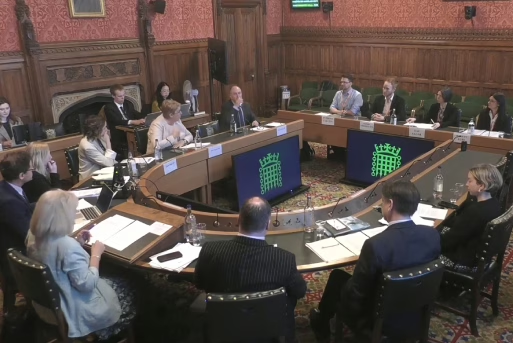
Coal Action Network was invited to attend Westminster where we gave evidence to the Welsh Affairs Committee in their inquiry about the environmental and economic legacy of Wales’ industrial past, alongside Friends of the Earth Cymru. This inquiry was opened in…
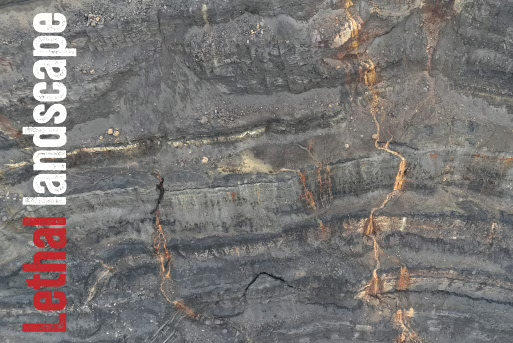
16 years of opencast coal mining in Ffos-y-fran has generated colossal overburden mounds, also known as slag heaps or coal tips. There are three coal tips, with the third being the largest, and cumulatively accounting for 37 million cubic metres of colliery spoil, rocks, and soil…
To begin with, we need to be scaling down coal extraction for use as fuel, whether “reclaimed” or newly mined, it’s all just as bad for the environment. Secondly, the industry has demonstrated time and time again that promises to restore sites after extracting as much profit as possible are worthless, and unenforceable. If we are to allow further coal extraction on the basis of “We will clean up our mess afterwards”. Something that I don’t believe that we should do anyway. The companies should be required to deposit some sort of secure bond in advance to pay for subsequent clean up operations. No bond, no permission, no exceptions.
Well done Coal Action Network for exposing this fraudulent and massively under capitalized project, with no likely community and environmental benefits. I’m amazed that ERI thought that they could ‘Green Wash’ their proposal and no doubt prioritize the open cast extraction where nearly all the profit lies. As for any commitment to landscape the site after the works are complete; how many Councils hold an applicant to their original planning conditions?
A new energy revolution is happening with the nature of energy conversion moving away from the heat released from burning fossil fuels. Future power stations will not be large, thermal steam generators, with a maximum efficiency of just 48 % when using coal. More than half of all primary energy is wasted, whilst adding the excess heat from the secondary cooling loop to the sky, river or sea.
I believe that Fusion will also make Fission obsolete and that various approaches to the Hydrogen-Helium energy cycle will create a new status Quo, allowing de-centralized and pollution free power without the plant volume and visual aspects of Wind and PV farms. All the scientific evidence indicates that this is possible but our politicians and companies are blinkered by the technologies of the past and present.
As we know these companies promises are just a puff of smoke, just look at Bryngwyn Colliery Engine House. The council fell for the false promise that the building would be looked after & made safe, a monument of the past. As soon as the houses were up the building company vanished and all that was left was a wire fence surrounding the old engine house building. Its a disgrace they can get away with it.
There seems to be no comeback when the company vanishes and profits have been given to shareholders, if the tip reclamation gets passed we need a stronger council.